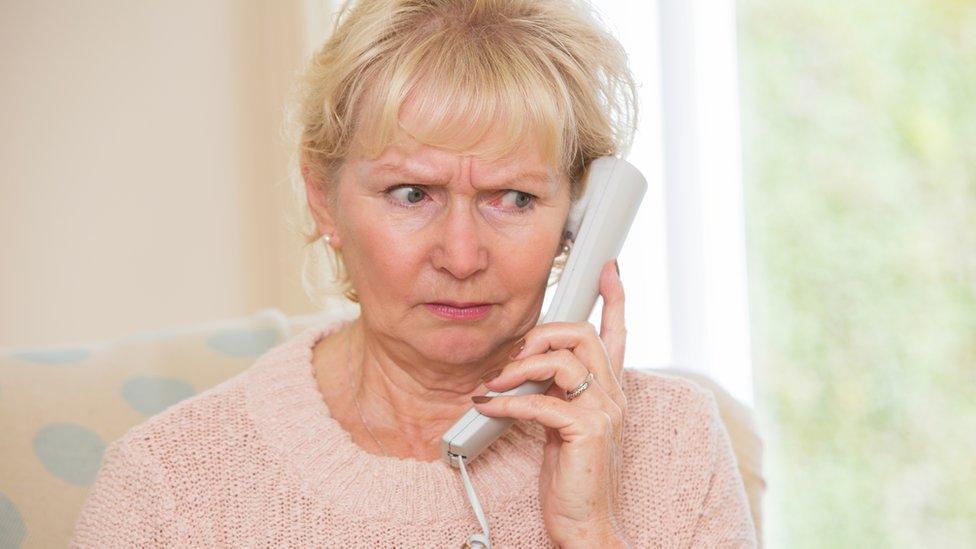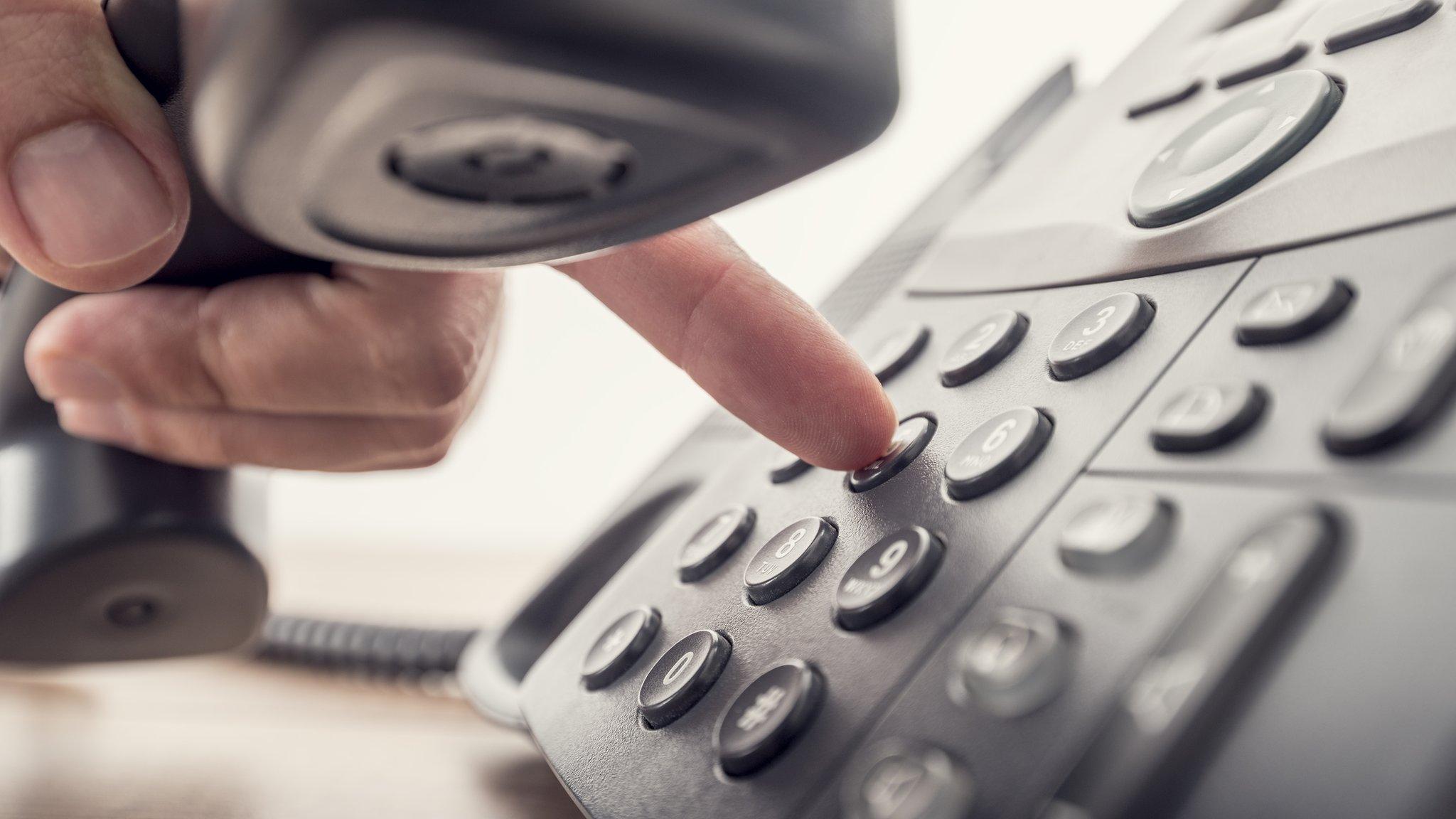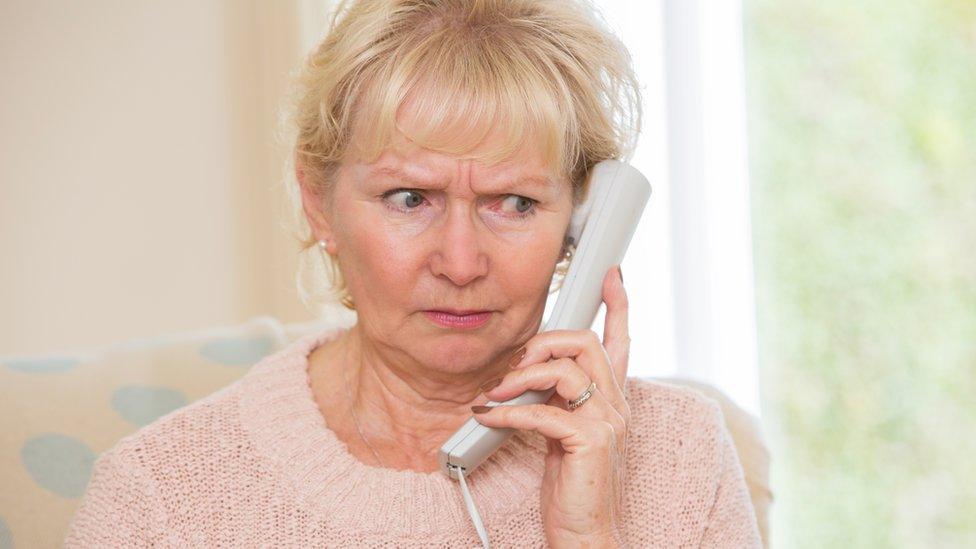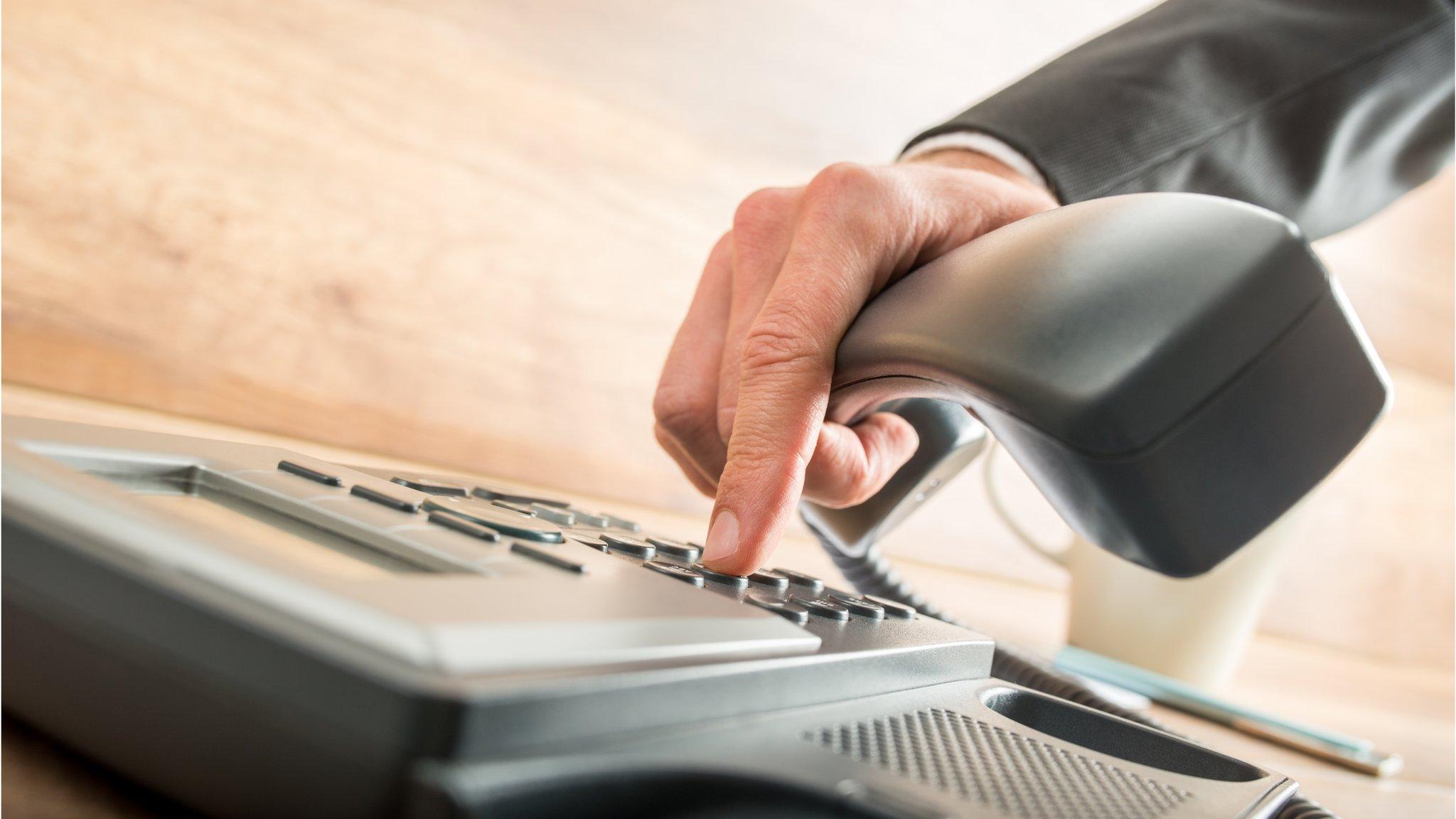Call blocking will be given to most vulnerable people
- Published

Elderly and vulnerable people plagued by nuisance phone calls will be given call blocking devices, the prime minister has announced.
The government will spend £500,000 on around 1,500 devices for the most vulnerable, including dementia sufferers.
Doctors, trading standards officials and local councils will identify those most at risk.
Theresa May said she is "determined to clamp down" on fraudsters.
The trueCall devices can block all calls from numbers not on a pre-set list chosen by the home owner.
The technology can also provide an option where callers can enter a PIN code to get through to the person or be directed to a friend or relative.
'Most at risk'
Mrs May said: "We want to create a fairer society by cracking down on unscrupulous practices which target the most vulnerable.
"This new, targeted scheme is the latest step in the government's fight against nuisance calls, protecting those who are most at risk, including those with dementia."
The move follows a similar trial scheme run by the National Trading Standards scams team last year.
It said that 93% of participants felt safer in their homes, including one person who had previously paid £150,000 to a scam caller.
'Greater sense of security'
Lord Harris, chairman of National Trading Standards, said: "The impact of nuisance calls - both emotional and financial - cannot be under-estimated.
"We know that these call-blockers can make a real difference to people's lives and give those in vulnerable situations, such as those with dementia and their families, a greater sense of protection and security."
The move also has the backing of charities, including Dementia UK.
Its chief executive, Hilda Hayo, said: "We welcome this project as some people living with dementia are vulnerable to nuisance callers who offer bogus services and financial schemes.
"These calls can not only have a negative financial impact but can also lead to psychological affects such as anxiety, depression and a loss of self-esteem."
- Published16 January 2017

- Published18 January 2017

- Published10 January 2017
